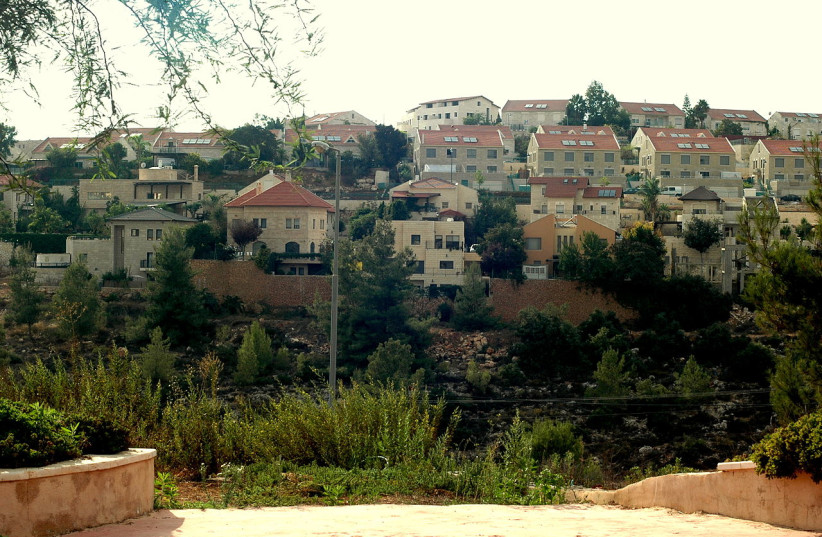Racheli Fromowitz landed in Israel in 2010 carrying something precious in her “baggage” – a comfortable familiarity with Israel’s language and culture. This allowed her to jump into life here without the hesitation and challenges most new arrivals experience.
Her parents, Renee and Chaim Fromowitz, had taken their children to live in Ra’anana when Racheli was four, staying for five years until professional obligations took them back to Teaneck, New Jersey. Chaim is Israeli and spoke Hebrew to the children. Over time, the entire family made their way back to Israel, but Racheli went first, straight out of high school.
 Learn how to buy your home in Israel with confidence
Learn how to buy your home in Israel with confidence“I grew up in a home where Zionist values were central to our Jewish and religious identity and where our responsibility to the Jewish people was emphasized. My summers at Camp Moshava further solidified those values for me. I reflect back very positively on my life in Teaneck – it is a model for me of what a strong, beautiful community built on rich Jewish values can look like,” she says.
“Nonetheless, my family knew that when I came to Israel for a gap year, I wasn’t returning. My parents built their life in a way that as soon as we were all here, they’d be able to come, too.”
Fromowitz did National Service for a year after her studies, and then went on to university and graduate school.

She met her husband, Canadian émigré Akiva Adler, at a Shabbat dinner in Tel Aviv. They settled first in Beersheba, where he was in university, and she worked for Nefesh B’Nefesh. She earned her master’s in business administration at Ben-Gurion University.
Her current job is with US-based Vine Ventures as chief of staff to the venture fund’s founding partner. Among her other responsibilities, she helps build a presence for the firm in the local geography, identifying opportunities for greater impact, and furthering the fund’s goal of advancing Israel’s place in the global business world.
In addition to professional leadership, her community leadership skills are being honed actively as well, rather unexpectedly.
Taking charge of Givot Eden
Now living in Tzur Hadassah, the Adlers bought a house on paper three years ago in a project called Givot Eden (Eden Hills) under construction near Beit Shemesh. A 1990s iteration of this project, geared to wealthy Anglos, was felled by red tape. It was revived several years ago by a different developer with a more attainable focus of attracting a mixed population of young families.
Nearly all the buyers of the project’s 270 homes are on the Modern Orthodox spectrum, many of them from English-speaking households, though by no means monolithic in philosophy, practice, or appearance. The new yishuv kehilati (rural residential community) is zoned to have 700 families within the next few years.
“Givot Eden grew in popularity really quickly, and every day I was getting calls from acquaintances and long-lost friends interested in the project. Soon after, questions started to come up in our WhatsApp group about where we would hold community events, what the schools would look like, and how security would be arranged,” says Fromowitz Adler.
It turned out, to her surprise and chagrin, that there was no master plan for the community’s supportive infrastructure.
“As someone who spent her summers at camp in America, it felt to me like we were going to a new campground with no camp director and no counselors,” she says.
In the summer of 2020, she took the initiative and formed myriad committees of property owners so they could take a proactive part in planning their new community.
And so, in addition to working full time and raising two toddlers, she became the voluntary mayor of Eden Hills.
“It has been totally grassroots, and we utilized the time before we moved in to help create the infrastructure that will meet the true needs of the incoming community. It’s clear that we could have been even more impactful knowing what I know now, and with the lessons we’ve acquired along the way, but done is better than perfect,” she says.
“It’s a fulfillment of my teenage dream to build a yishuv in Israel with people I respect and love. No words can describe how gratifying that opportunity is. But it comes with tremendous tension and responsibility that I don’t always know how to handle,” she adds candidly.
“From the outset, my goal has been to improve upon the standard, systematic planning of infrastructure and services that regional councils are accustomed to,” she says.
“I am often the voice of optimism and idealism that our community infrastructure should not only check the boxes but should also properly support the large incoming population. Usually, I’m talked down to a more realistic picture as a result of budgetary and bureaucratic limitations. However, my hope and optimism often inspire everyone at the table to be creative, so we usually find a way to compromise in the middle.”
She says that the ability to listen to different perspectives will be critical in building a warm community comprised of people with diverse backgrounds and ways of expressing their Judaism.
“It’s just about being aware that everyone has something to contribute, and opening your eyes to see what your own contribution can be,” she says.
“Israel has a unique way of encouraging people to step up to the plate and take initiative. That’s desired and welcomed and respected in Israel in a way that I don’t think is as true elsewhere.”
Which is exactly how she became mayor of Eden Hills. “Tag, you’re it!” she says with a laugh.■
RACHELI FROMOWITZ ADLER, 31 FROM TEANECK, New Jersey, TO TZUR HADASSAH, 2010
 Sign up for our newsletter to learn more
Sign up for our newsletter to learn more 